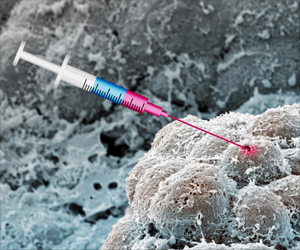Preschool autism communication trial had moderated the behaviour of those who had been severely autistic, unresponsive or unable to speak.

‘After the six years of intervention parents said there were also improvements in relations with other children, in social communication and in repetitive behaviours.’





Six years after parents were trained to better understand and interact with their preschool children, researchers found that the therapy had moderated the behaviour of those who had been severely autistic, unresponsive or unable to speak. The success of the preschool autism communication trial (Pact) has surprised even the researchers who designed it. There are no drugs to treat the condition, which typically sets in around the age of two, and many families have tried intensive training of their children by therapists, with mixed results. Pact instead trained the parents to help their children.
Prof Jonathan Green at the University of Manchester, who led the study published in the Lancet medical journal, said they had not found the cure for autism, but he and his team believed it had great potential and hoped it would be widely adopted.
“The advantage of this approach over a direct therapist-child intervention is that it has potential to affect the everyday life of the child,” he said. “Our findings are encouraging, as they represent an improvement in the core symptoms of autism previously thought very resistant to change.
“This is not a cure, in the sense that the children who demonstrated improvements will still show remaining symptoms to a variable extent, but it does suggest that working with parents to interact with their children in this way can lead to improvements in symptoms over the long term.”
Advertisement
The therapy continued with the parents for the next six months with less intensity. At the end of the first year, the researchers could see the children had improved, but the most dramatic development was seen at the follow-up six years later.
Advertisement
Uta Frith, emeritus professor of cognitive development at UCL, said called the study ‘a remarkably positive story’. “I can see why these researchers are excited,” said Dorothy Bishop, professor of developmental neuropsychology at the University of Oxford.
“These results at follow-up are pretty consistent in showing the benefit of this early intervention for autism across a range of measures. My impression is that this is an intervention that reduces the severity of autistic symptoms, rather than curing autism. Nevertheless, for parents of children with autism, even a modest reduction would be worthwhile.”
Dr Max Davie, of the Royal College of Paediatrics and Child Health, said it offered “a hugely cheering message for families”, while Uta Frith, emeritus professor of cognitive development at University College London, called it “a remarkably positive story, because the intervention itself was neither intensive nor invasive”.
The absence of any hope, as well as the very sudden regression in children’s behaviour, led many parents to believe in the discredited theory of Andrew Wakefield that the MMR (measles, mumps and rubella) vaccine was the cause of autism.
“Parents commonly tell us that they fight for a diagnosis but when they finally get it the cupboard is bare, with little information or tailored support available to them,” said Dr James Cusack, director of science at the charity Autistica. “Too often, parents fall victim to the false claims of charlatans who prey on desperate families. These results look promising for the many thousands of parents who want to find early interventions for their children based on solid science.”
The researchers said children’s communication with their parents was improved at the end of the six years. The parents said there were also improvements in relations with other children, in social communication and in repetitive behaviours. But there was no change in child anxiety, challenging behaviours or depression in the autistic children and they would still need a lot of support while growing up. About 1% of children and young people are affected by autistic spectrum disorder, which ranges from mild to severe. The lifetime costs to the UK, which include health, social care and education costs as well as productivity losses, are estimated at £1m to £1.5m per child and between $1.4m and $2.4m in the United States.
Source-Medindia









